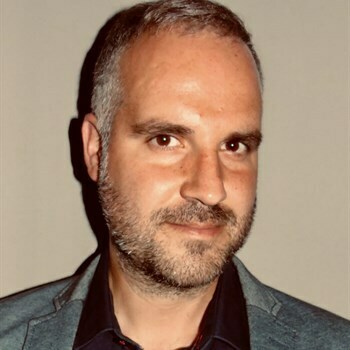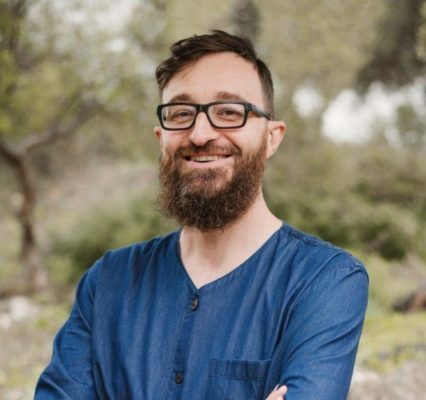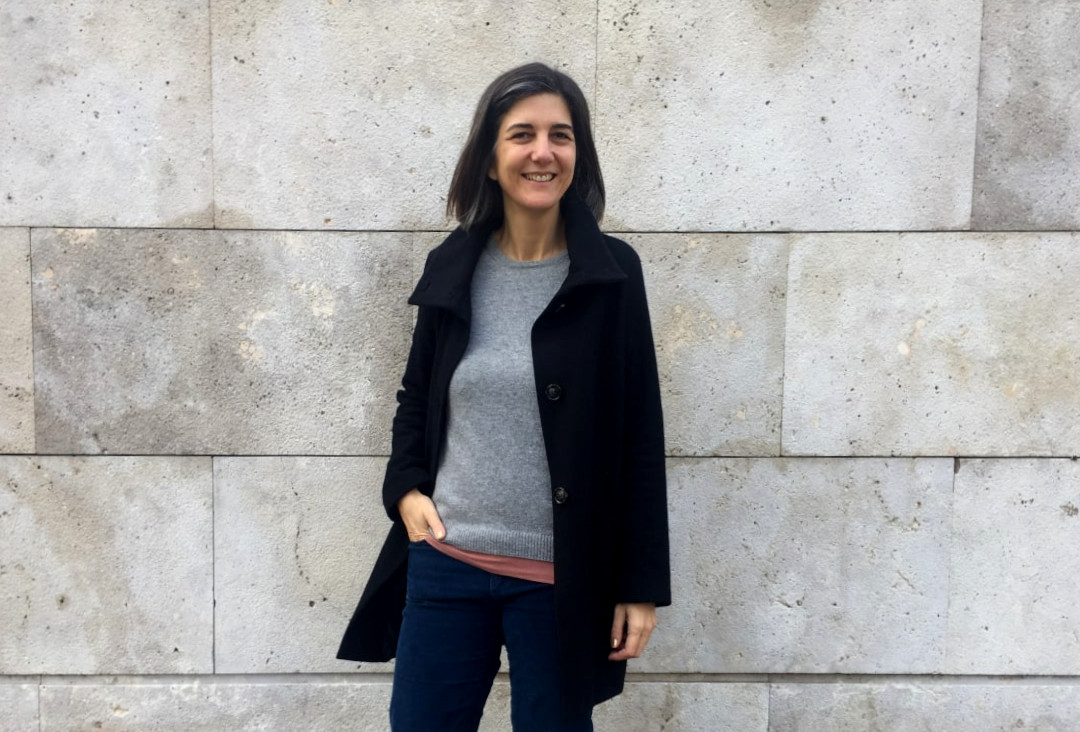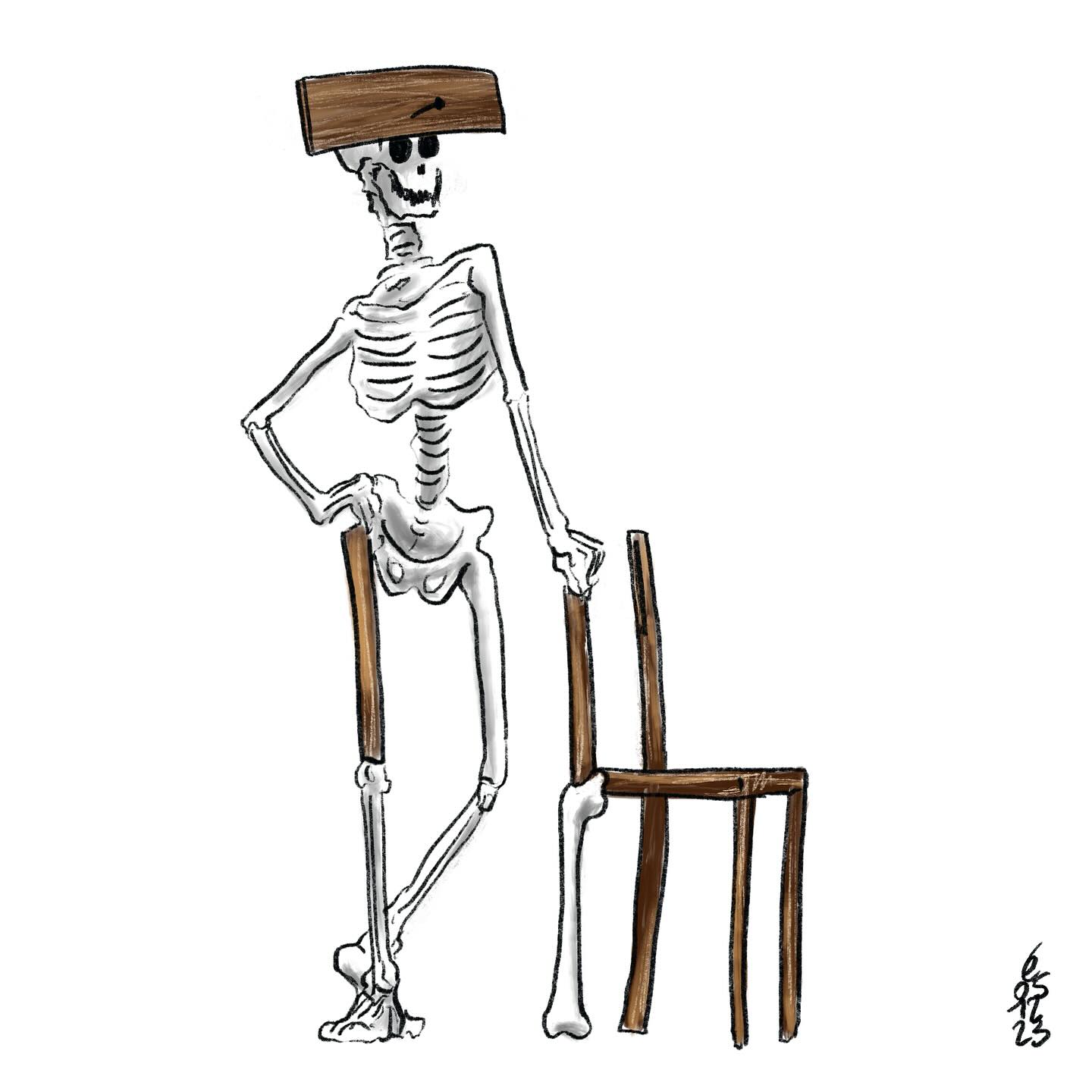Interviews
Oliver Escobar “A deliberative process is about unlearning the habits of a public sphere that has been geared towards polarization”

A conversation between Tayrine Dias, Olivier Schulbaum and Oliver Escobar, Senior Lecturer in Public Policy at the University of Edinburgh; Academic Lead on Democratic Innovation at the Edinburgh Futures Institute; and Co-director of CRITIQUE (Centre for Ethics and Critical Thought), about deliberative democracy, public participation and democratic innovation, with a focus on Scotland’s Climate Assembly
I'm interested in a lot of things, I have an interest in politics, in culture, in all kinds of arts-mediated activism. I'm interested in social movements, in institutions and formal official spaces. Besides that, nothing too unusual. Just walking the hills with the dogs, films and sometimes I write a little bit of literature as well, mainly poetry in Galician language.
Let’s talk about the average citizen. There’s this tendency of feeling a relief to be in a democracy most of the time. But we have the feeling that democracy only motivates us when it’s threatened, when it’s at risk. So how can we make sure we’re not waiting for the next big crisis to create that culture of participation and then engage citizens?
I don’t think there’s any country that could call itself a full democracy. We are and have been for about 3,000 years on our way towards something that might look like democracy. And I think you’re right: it seems that we are incapable of taking important decisions, making important reforms, restructuring, unless there are these big shocks.
In the field of Democratic Innovation it is sometimes quite visible, some of the really important or high profile processes, like the Icelandic crowdsourcing of the Constitution, came after the financial crash. And then in other places on different levels, some of these crises are larger or smaller, but there is a dependency on shock and crisis in order to create space for change. A lot of it has to do with the strength of the status quo in remaining anchored and therefore protective in terms of gatekeeping during so-called ‘normal times’, that’s becoming quite relevant because we now seem to live in a state of ongoing crisis of some kind. It’s not just the climate crisis or the pandemic crisis. It’s the ongoing crisis of inequalities that was mounting for 40 years but accelerated since the financial crisis.
So when crisis becomes the norm, that’s just how things are. And there’s a lot going on in the field of Democratic Innovation. I use that label to describe basically a full spectrum of processes and institutions of participatory and deliberative democracy. It’s not a coincidence that the field has had such a revival in the last ten years. It goes alongside with linking all these crises. A deeper crisis of power inequalities that, to me, is the source of all these other crises.
We found your recent publication the Handbook of Democratic Innovation and Governance very inspiring. Focusing on the chapter 12, you discuss in depth facilitation and the role of facilitators, situating the importance and how powerful this role is in shaping the process towards inclusive deliberation. Regarding the impartiality expected from facilitators in a context of growing polarization, and what you mention as a key ability for facilitators, that is, to be able to talk across political divides and to navigate those differences. Have you come across methodologies, tools or approaches that are being used to deal with a situation of growing and more extreme polarization.
It is important at this point to distinguish between dialogue and deliberation. The essential difference is that in dialogue you don’t try to resolve the situation. Dialogue is just about exploration and understanding, whereas deliberation is about resolution. Deliberation is’s about reaching a decision, which comes from decidere, which means to murder the alternative. So when you’re making a decision, you’re choosing one amongst the many and you’re killing the others. Now, in dialogue, you remove the pressure of decision-making so that people can explore without being pushed to resolve. And in doing so, that often allows people to get into the grey areas and beyond oversimplification to see a range rather than sort of a very binary type of perspective on an issue.
Dialogue allows for that and debate does not, debate is the opposite. In debate, you eliminate the grey areas to make your point, you need to sometimes become a bit more extreme than you would go and to persuade the other or to ‘beat down’ the other (from the Latin debatire). You end up oversimplifying, eliminating your own doubts and pretending that you’re absolutely certain about what you’re saying. So dialogue allows things that debate doesn’t allow.
Unfortunately, too often deliberation looks more like debate than it looks like dialogue, and that is a problem. The ideal is some form of deliberative dialogue. And usually we talk about the D+D model, which is an early stage of dialogue, followed by a stage of deliberation. A stage of dialogue which is about mutual understanding relationships, a stage of deliberation, which then on the basis of those relationships and understanding, it can be easier to do the hard work of trying to weigh up options and find some level of common ground, which is not always possible.
This is not just about assemblies, it’s also about participatory budgeting and some forms of digital crowdsourcing. We need to recognize that participating in these spaces requires a great deal of unlearning. So you’re asking people to unlearn habits of a lifetime. A lot of people think that, okay, so this is how you participate in the public square. Sharp elbows, take the floor and dominate, persuade others, minimize or dismiss others. There are a series of rituals that we have in the public sphere that have become so entrenched.
In the processes that we’ve organized, it only takes a few sessions for people to begin to think, ‘oh, okay. So there’s another way in which I can bring myself into this space’. ‘There are other ways which I can engage’. ‘Curiosity and openness is something that is going to help me, and it’s going to create a space where we can find some productive options’. It’s not just about learning new ways of engaging, it’s also about unlearning the habits of a public sphere that has been geared towards polarization because of a number of factors.
That’s a very good point. Dialogue is also not a perfect space, but one where we could also rethink the agendas of the citizen assemblies, which are basically questions designed and framed mostly by institutions or experts. Could we get a series of questions co-designed by citizens and brought to the public agenda? Would that work?
It would work for the agenda-setting, especially on issues that require brave decision-making, structural reform, and important changes. If the agenda is narrowly set by a narrow set of interests, regardless of whether they are a particular institution or a particular political class, it cannot by definition be transformational enough, and many of the issues we are facing require transformational change. The agenda-setting is that stage for exploration and understanding. And that’s where D+D comes together because you will be already beginning to make a decision.
The task of Scotland’s Climate Assembly was to answer the question, ‘how should Scotland change to tackle the climate emergency in an effective and fair way?’ That in itself was the result of a dialogic and then deliberative process within the Stewarding Group. In the Stewarding Group, we had Extinction Rebellion, we had politicians and people like myself. We had people from different sectors, housing, business, agriculture, farming. We had young people, activists from youth organizations. We had external facilitators coming to facilitate a session to develop the proposal of the agenda for the Assembly. That was dialogic and towards the end deliberative, but it was dialogic in the sense that we genuinely explored. And we ended up with that kind of question that caters to people on the right and people on the left because it has those two words, effective and fair. So it was an accommodation across different interests, everyone was happy with the question and Assembly participants took it and ran with it.
In an ideal world, participants themselves will then have a say in that process as well. But that’s not how all of these assemblies are designed just now. This was somewhere in between the ideal and the pragmatic.
Let’s talk about ownership of participatory processes, it could be related to the curve of engagement of citizens. What do you see as challenges regarding ownership of these initiatives? Also, regarding sortition, it is very expensive for small municipalities. How can we avoid these obstacles and still bring together diverse groups of participants? Is there a way we could ensure diversity but not have exactly the quotas that the scientific methodology asks for?
About ownership, this is one of the key dilemmas. Should these spaces be created by formal institutions and hosted by them, or should they be created in civil society? The argument is that if they are in civil society, they might have some level of independence. It is still questionable in the sense that civil society also needs to obtain funding and also needs to have a bottom line. You might not be dependent on the state, but on other interests, and that can be problematic as well. On the other hand, if it’s just the state, there’s a gatekeeping, a reproduction bias that is so hard to overcome. But also the advantage of the state hosting is that it’s closer to decision-making and in theory, closer to the power-holders. If it’s out there in civil society, it might not have the right connections to have impact. If it’s just purely within the state, it might not have the level of independence it requires to get beyond the status quo. So the provisional solution to that is to do something in between. I think in Scotland, we are trying to propose that these things should be a mix of civil society practitioners and civil servants, not just civil servants, not just practitioners, but a blended kind of in-between group. That helps. So far the assemblies we’re having in Scotland are going in that direction, but not fully because they are still hosted institutionally. There were people brought in from civil society organizations to help and to design and to facilitate. But now we have put forward proposals to the Scottish Parliament to institutionalize a hybrid model in a more careful way. The issue of ownership is something we still need to learn more about.
One of the reasons I work on these topics is out of the frustrations I had when I was in Spain, in Santiago de Compostela. In the early 2000s we did a lot of assemblies and we did a lot of experimenting in the protests against the LOU, which is the Ley Orgánica de Universidades. We took over the universities in Santiago and Seville, in Barcelona and Madrid, and in many other cities. For four months we took over and we worked on the basis of assemblies, developed new laws, all kinds of things. [That is where] I started to learn facilitation, it was building on a long tradition of anarchist practices in Spain. I think [that movement] was quite instrumental, feeding into Los Indignados (the 15M movement). A lot of the people who were in the LOU protests then became quite prominent later. In many ways my frustration was always that there was a lot happening on the streets and in communities and it never quite got through the institutional doors.
The power of some of these assemblies and other processes, like participatory budgeting or digital crowdsourcing, is precisely that they try to penetrate those walls and create a bridge and begin to blur the boundaries. And in doing so, hopefully opening up the state to become something else and also allowing civil society and activists to engage in reconstruction and not just deconstruction or critique. I’m interested in that, and that’s why I like to think beyond autonomous spaces and social movements, as important as they are. We also need those hybrid spaces now.
Now, coming to the issue of sortition and organising citizens’ assemblies of the ‘deliberative mini-public’ type, it can be very expensive, but I think there’s a spectrum, we’ve tried all kinds of things. I mean, in the smaller processes we’ve done at a local level, for example, we do on-street recruitment. It’s still random because you approach every third person that you see , or you knock every fifth door, every second block. Those approaches allow you to sometimes reach people who will not be in official lists or who might be homeless and sofa-surfing, which is a terrible term, actually.
In the UK, we have a lot of people who have no permanent address and they are in between spaces. Sometimes they are on the streets, of course, but the majority of them are in someone else’s house. And often some of the methods that are used for sortition will exclude people who are in transit. We know a little bit better how to try and avoid that. And at the local level there can be street recruitment, a variety of methods as well. In some places more traditional mechanisms of advertising and people putting themselves forward have been used. The costs can be reduced, but I think the key question [is not price], I think price is the wrong measure, the right one is value, because value is the ratio between purpose and outcome. If you’re doing something that is high stakes, that hasn’t been resolved, that you don’t know what else to do and you want to try something different, and if it gets sorted out or fixed is going to be a big deal because it couldn’t be resolved, then spending however much money makes sense. If you’re doing a process just because it’s a nice thing to have or because it’s fashionable, or because you always wanted to do this thing but it’s not really clear what purpose it is going to fulfill, then of course it’s always going to feel expensive. So I think it’s more about value, which is that ratio between purpose and the price tag and the outcome versus price.
There are ways of doing sortition that reduce these costs. And this is why it’s so important that the field includes a plurality of practitioners and organizations. I don’t think we have that yet in the UK. There are some dominant players, two or three, and I don’t know if that’s the case in other countries. This is one of the things we want to study. We want to understand the industry, the makeup, the mix of practitioners. In the UK most assemblies look very similar and that’s the reason, because it’s always the same organizations. So there can be a lack of creativity, sometimes a lack of trying new things. I understand why they tend to do things in a particular way. These things are very difficult to organize, the logistics are really challenging. You want to play it safe and do something that is going to work, and if you know that something works, then you keep repeating it. But I think there should be more space for more creativity and diversity. With sortition it is the same. I think we just need to keep experimenting. If these things become very well known, then it will become easier to recruit and mobilise. That’s the bottom line. If people know that at some point they might get a letter, and if you’re someone who is fed up with more traditional spaces for politics, this is for you, because it’s going to be built around you and you will have a powerful role. Once the story is out there and people become a little bit more familiar… I think the cost of sortition is going to go down because at the moment, the return is really low. In the Climate Assembly in Scotland, we sent 20,000 letters and the return was less than 5%. And therefore the self-selection bias is already massive. So even the scientific approach is very problematic. And I’m not particularly fussy about that because I think that depends on broader public awareness, and I think on a local level that might become easier.
There’s a culture change element until people know that these things are real and that some of them are actually meaningful. It also depends on the participants for these things to be meaningful, as the French experience is showing in the aftermath. In the Scottish Climate Assembly, citizens are also not happy with the government response, and some of them are self-organizing to take things forward. These new spaces depend on broader public awareness, and I think there’s so much more to do there.
In Deliberation, there is emphasis on expertise and evidence. Expertise can also be framed as experience, that’s one of the things that we have been trying to do as well with certain approaches like Design Justice, claiming one’s own experience as expertise. What is the role of digital or data literacy in being able to deal with evidence and deliberation?
A great percentage of assemblies and other deliberative processes place far more emphasis on formal evidence than on a diversity of knowledge. Ideally, what should happen is that a variety of knowledge should be part of the process, and that includes experiential knowledge, local knowledge, emotional knowledge, scientific knowledge, professional and technical knowledge.
The argument goes that a lot of those different knowledges will already be in the assembly through the members, therefore, what needs to be complemented is some of the more formal scientific or professional evidence. I suppose that’s partly true, but that’s not always the case. For example, in some of the assemblies on climate, I think there should be much more space for people who are already suffering at the frontlines of the climate emergency. In the Scottish climate assembly we wanted to connect and we could have, but it didn’t happen in the end.
Many of us were proposing that we connect to people at the frontlines in other continents who are suffering just now. The real consequences of this crisis, that kind of testimony is essential to have there, as well as other testimonies that were there through the scientists. But we also had speakers at the assembly, for example, from green food cooperatives. We heard from people who are community organizers on climate action. Sometimes it’s framed as if the scientific evidence was enough, it is not. It can never be.
The interesting thing about mini-publics is that the evidence shows that everyone has the potential to contribute regardless of differences in skills or knowledge. In processes over the last ten years we have hosted people who didn’t have basic literacy skills, who needed a partner to support them and to be able to participate. We’ve had all kinds of situations, and you can adapt, but that requires time. You really need to invest in the learning phase in a way that makes sense depending on the context and the number of participants.
It is important to cater to a variety of learning styles. Often we are too text-heavy, too verbal, or too oral-heavy. There’s so much more that can be done, more audiovisual, more tactile, more kinesthetic ways of recognizing that we all have different styles of learning. The learning phase should always include a variety of formats. We did some citizens’ juries on wind farms, I would have liked to take the jury to the locations and just engage with the place and begin to talk in the real spaces, for example, which is a little bit more kinesthetic, a way of learning and thinking that it’s not just about being in front of each other in a conference room or a digital space. So I think there’s so much more that needs to be done with the learning phase to cater to a variety of learning styles.
The other thing that we concluded in one of our projects was that sometimes there might be a role for having some critical friends available for the assembly to consult. It’s less about whether they agree or disagree with an argument or an opinion, it’s more about some of the technicalities that go behind, the credibility of a source, a study. In those cases, sometimes in the learning phase, having some critical friends who work with the citizen jury, the assembly members or the participants to unpack things and to stimulate critical thinking and questioning of expertise can be useful so that it is tested and scrutinized.
With the pandemic, which affected the way citizen assemblies have been organized, a rapid digitalization comes in. Could you map evident risks and also opportunities of digitalization of deliberative democracy and how we can ensure inclusive resilience, participation and online deliberation?
Digital assemblies require a lot of technical support, in some cases getting devices and Internet connection, a lot of coaching and working individually with members. So a lot of that is logistics and it takes a lot of work.
The first Scottish citizens’ assembly was half face-to-face, half digitally, and there was a lot of concern whether they could work online as well as they did face-to-face, but they actually worked just as well online. They completed the process. They did as well as they could do, given the limited time they had. One might say that’s because they already knew each other and worked face-to-face before the transition to the digital space, and it was helpful that they already had those relationships formed. That might be true, but they still managed to do the job. The second assembly was fully digital, they didn’t get to meet each other. It is true that there is something about the social and relational fabric of these spaces, things that you can do in person that are very difficult to translate online.
The challenge for future digital spaces like these is how you try to create something that makes sense online and that tries to develop that social and relational side. Even without that, Scotland’s Climate Assembly was fully online and managed to do the work. Connections were made, people still worked together well. In another process, the Digital Ethics Citizens’ Panel, we know that many of the people who participated in those panels, couldn’t have participated if they were face to face. And they told us many times, look, the only reason I can do this is because I can make it work around my kids or my work or otherwise. And digitally is allowing me to do that. I don’t need to travel, Scotland has a very tricky geography for traveling. We used to talk a lot about exclusion and digital. I think there’s plenty to say as well about the inclusion side of digital and what it allows.
In terms of the evidence or learning phase, you can bring in people from all parts of the world to contribute, which you cannot do face-to-face. So I think we need to stop trying to make the digital space something that looks like the in-person space and instead of that, just recognize the uniqueness and the amazing elements that the online space has and build it in a way to maximize what digital can do, which in-person cannot do. In many of these processes, I think the future is going to be hybrid as well.
A lot of people are worried about the quality of deliberation online, we actually studied this. We used the Discourse Quality Index. The quality of deliberation was high, certainly not lower than face-to-face. In some cases, for example, in the first Scottish Assembly, the quality of deliberation online was equal or slightly better than offline. The caveat there is that this might be because the digital part happened later, so people have developed habits of deliberation throughout. But, I’m not concerned about that argument about deliberative quality. It can be done online and in terms of inclusion, in some cases with the right logistics and work, it can be even more inclusive than in person.
Could you identify some of the variables that affect deliberative quality online?
In the group dynamics facilitators need to work harder to create group trust and bonds. And I think there is something to be said about what are the skills that a digital facilitator needs to foster dialogue and deliberation online. I don’t think we’ve done enough on that. I think we’re beginning to learn about what those are, but we do have a lot in our reports from these Scottish assemblies about the challenges of facilitators and some of the things that need to be done, so that facilitators can really focus on trying to create the right type of space, and those skills are different from facilitating face-to-face.
At the beginning of our conversation, you mentioned walking the hills with the dogs is therapeutic. So walking the dogs is more important than walking the haze of democracy?
Yeah, that is the foundation for everything else. That’s usually when I actually get a bit of thinking space, the dogs, they’ve been amazing, especially during the pandemic. It’s been hard for everyone. We had a number of different and difficult circumstances and they really kept us going.
References:
Escobar, O. (2011). Public dialogue and deliberation: A communication perspective for public engagement practitioners.https://www.ed.ac.uk/files/imports/fileManager/eResearch_Oliver%20Escobar.pdf
Escobar, O. (2019). Facilitators: the micropolitics of public participation and deliberation. In Handbook of Democratic Innovation and Governance. Edward Elgar Publishing. https://www.research.ed.ac.uk/en/publications/facilitators-the-micropolitics-of-public-participation-and-delibe
Escobar, O. (2021) Between radical aspirations and pragmatic challenges: Institutionalising participatory governance in Scotland, Critical Policy Studies. https://www.tandfonline.com/doi/full/10.1080/19460171.2021.1993290
Climate justice and democratic innovation: Scotland’s Climate Assembly: https://meta.decidim.org/conferences/DecidimFest21/f/1657/meetings/1624
On the Children’s Parliament: https://www.childrensparliament.org.uk/climate-change-for-the-climate-assembly/
More about Oliver Escobar’s work and publications: https://www.sps.ed.ac.uk/staff/oliver-escobar
Podcast: Peter Pula in conversation with Oliver Escobar - on democracy, the commons and change: https://axiomnews.podbean.com/e/oliver-escobar/






